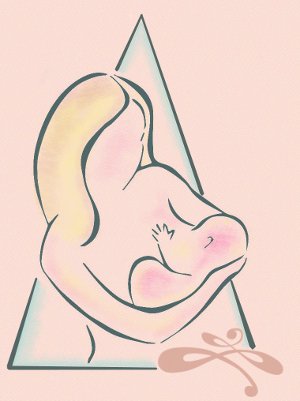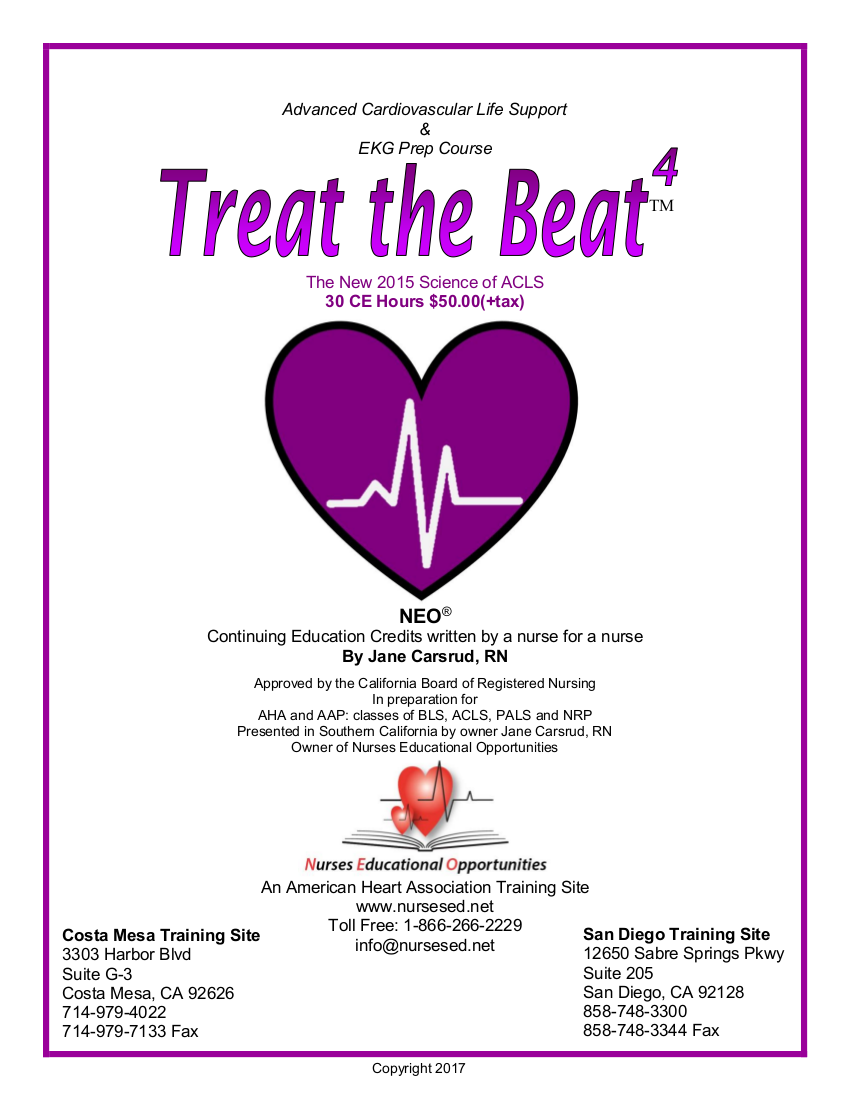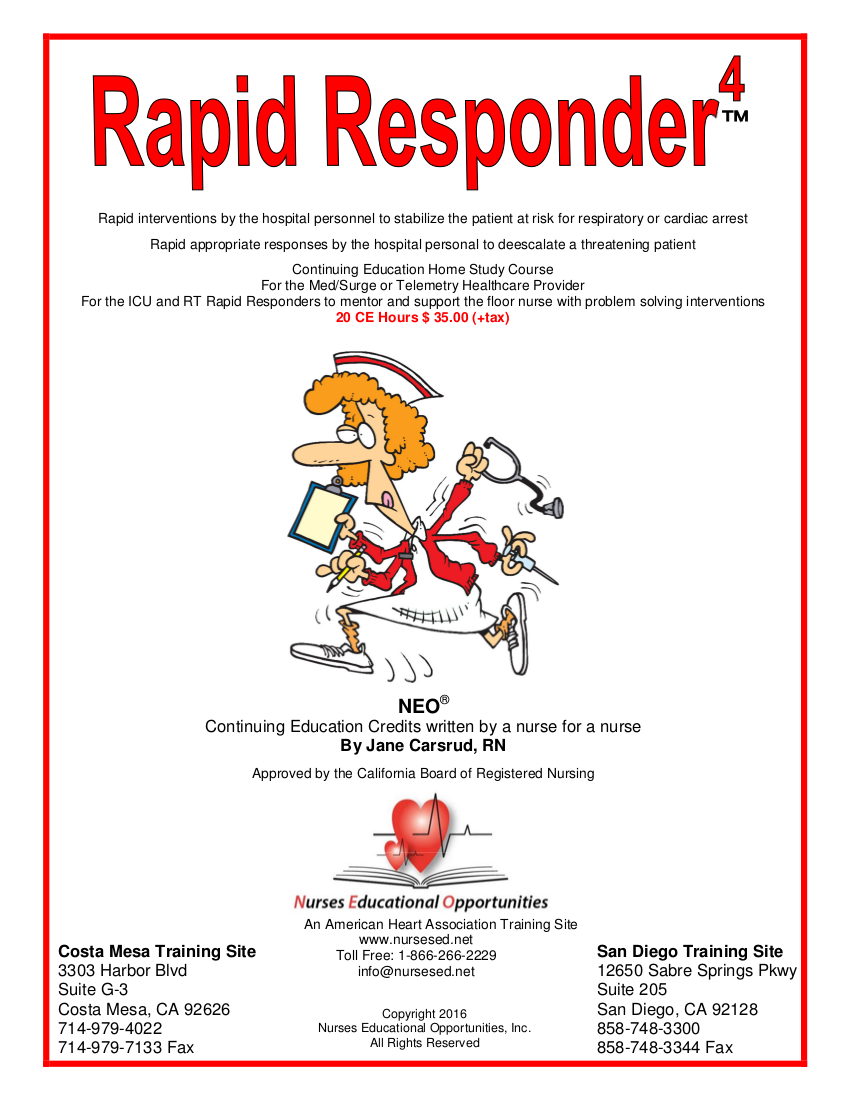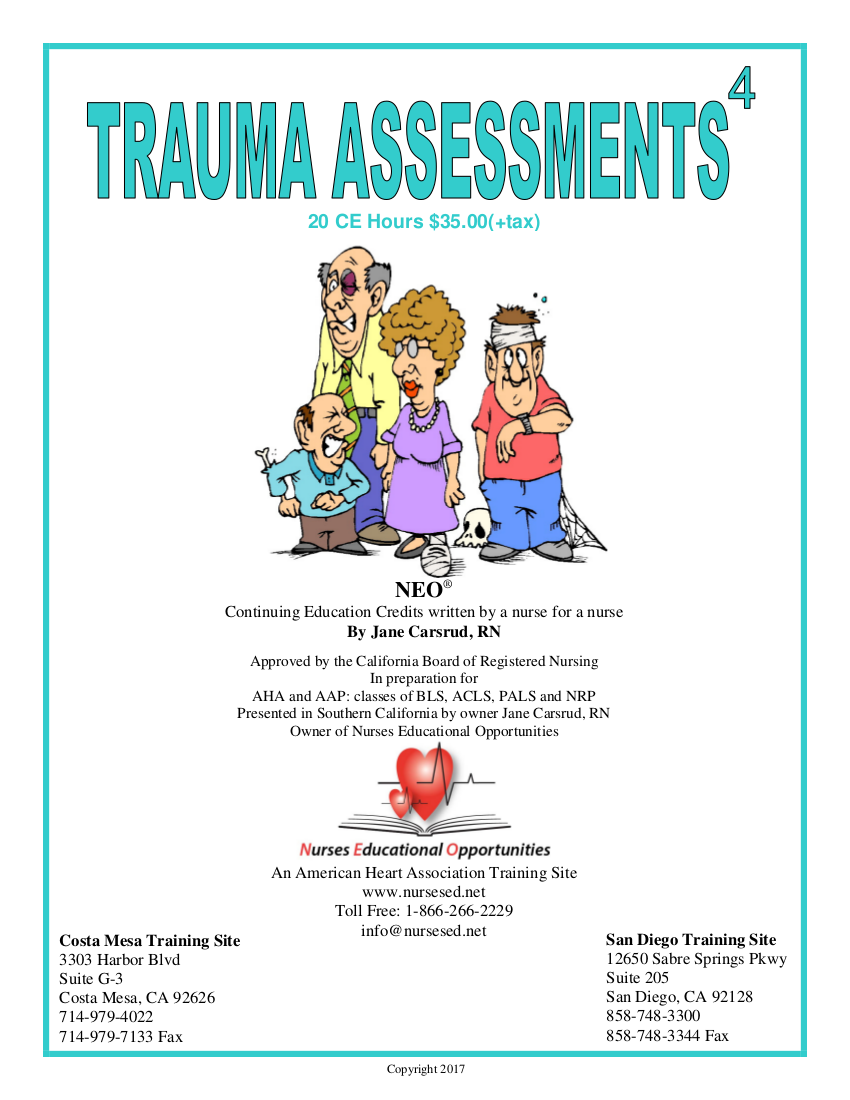
Neonatal Assessment
The primary goal of a neonatal assessment is to identify problems and become familiar with early intervention technique to stabilize an infant when emergencies occur.
Course Details
Duration: 4 hrs
CEs: 6 CEs
Cost: $115
Textbook: INCLUDED
Pre-Requisites:
No clinical experience is required.
This Program is for you if you are enrolled in a Nursing Program, or you have graduated from a Nursing Program in the past.
New Grads/Re-entry Nurses are welcome to enroll!
Transfer Nurses who would like to enter Labor & Delivery Care, NICU, or OB/Postpartum unit should enroll in this class!
Respiratory emergencies are among the most life-threatening and can develop quickly in the neonate.
Cardiovascular emergences cannot be predicted or anticipated.
Gastrointestinal emergencies are not always anticipated but must be dealt with quickly and effectively because they pose a serious threat to the well-being of the neonate.
Materials
 Classroom Course
Classroom Course
Neonatal Assessment, by Jane Carsrud
The textbook is INCLUDED if you are taking the classroom course for Neonatal Assessment.
Purchase Textbook ONLY
You can also purchase the textbook ONLY, and use it for 20 Continuing Education units.
Price: $35
Class Schedule
NEO Orange County
NEO San Diego
Course Objectives
This course will discuss specific maternal risk that can cause particular neonatal effects. Successful neonatal transition requires a complex adaptation with
- The respiratory; and pulmonary systems
- The umbilical cord
- The cardiovascular system
- The renal system
- The gastrointestinal system
- The immune system
- The hematopoietic system
- The neurologic system
- The hepatic system More perceptible learning is done with video presentation of
- The Ballard Score for determination of gestational age and growth evaluation.
- The respiratory assessment
- The cardiovascular assessment
- The neurological assessment
- The gastrointestinal assessment
- The genitourinary assessment
- Emergency situations that are life-threatening is presented with videos of
- Respiratory emergencies
- Cardiovascular emergencies
- Gastrointestinal emergencies Course Objectives: Upon completion of this course the learner will be able to
- Perform a systematic neonatal physical assessment
- Evaluate the developments status of the newborn
- Gather vital pieces of data when abnormal findings are noted
- Identify abnormal breath sound
-
Emergency situations that are life-threatening is presented with videos of
- Respiratory emergencies
- Cardiovascular emergencies
- Gastrointestinal emergencies Course Objectives: Upon completion of this course the learner will be able to
- Perform a systematic neonatal physical assessment
- Evaluate the developments status of the newborn
- Gather vital pieces of data when abnormal findings are noted
- Identify abnormal breath sound
- Identify abnormal heart sounds
- Identify the neonatal reflexes
- Inspect, palpate and auscultate bowel sounds
- Inspect and palpate the genitourinary system
- Inspect and palpate the musculoskeletal system
- Inspect the skin rashes, color and integrity
- Identify and state the interventions of a congenital diaphragmatichernia
- Identify and state the interventions of persistent pulmonary hypertension
- Identify and state the intervention of a pneumothorax
- Identify and state the interventions of a cyanotic heart defect
- Identify and state the interventions of a hypoplastic left heart defect
- Identify and state the interventions of an open abdominal wall defect
- Identify and state the interventions of a tracheoesophageal fistula
- Identify and state the interventions of necrotizing entercolits It is imperative the nurse is able to perform a systematic assessment of a newborn and identify abnormal findings and respond effectively and quickly for the well-being of the newborn.
Reference: Assessment and Care of the Newborn – Patti J. Thureen – Saunders




